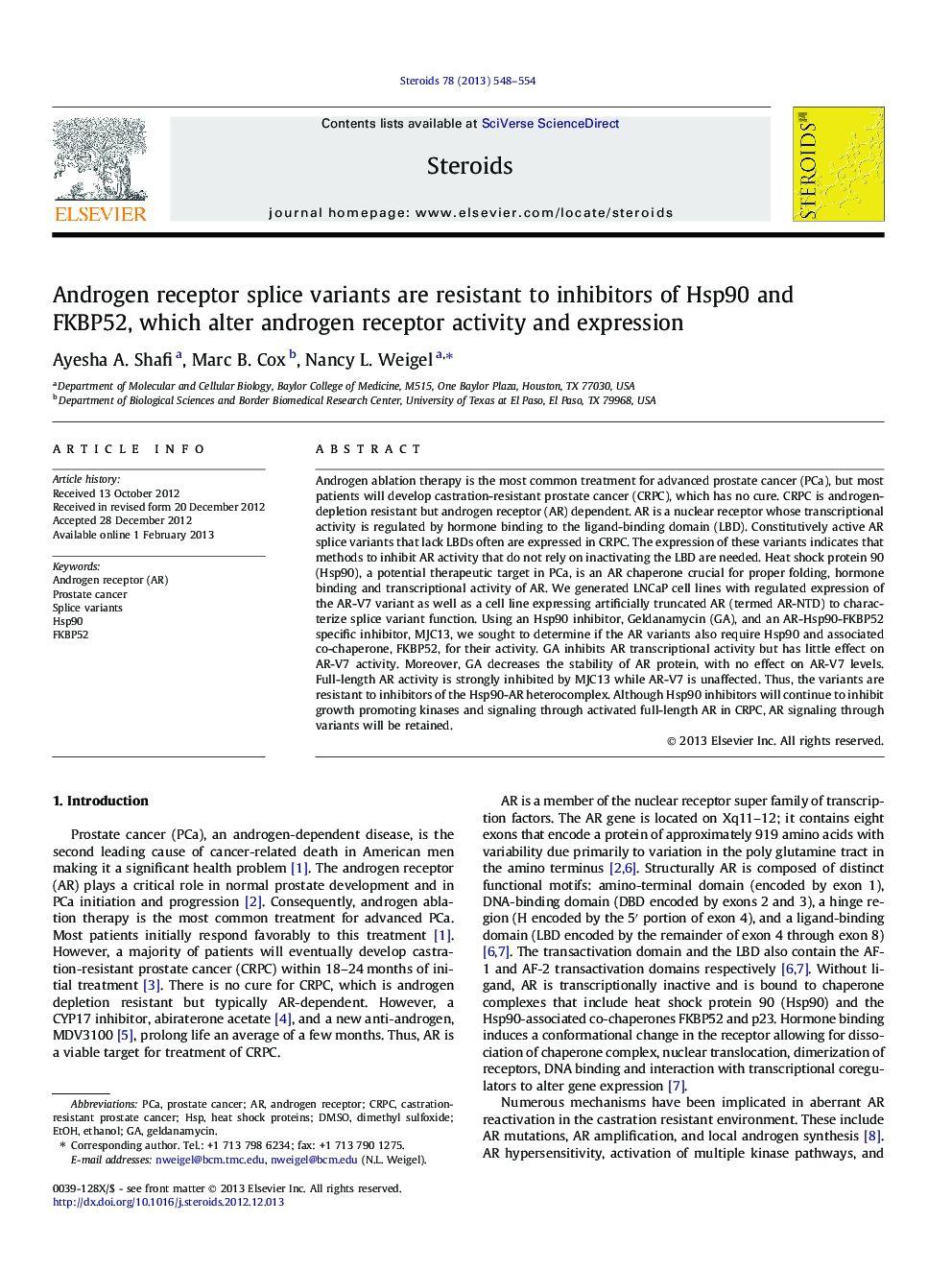| کد مقاله | کد نشریه | سال انتشار | مقاله انگلیسی | نسخه تمام متن |
|---|---|---|---|---|
| 2028071 | 1070392 | 2013 | 7 صفحه PDF | دانلود رایگان |

Androgen ablation therapy is the most common treatment for advanced prostate cancer (PCa), but most patients will develop castration-resistant prostate cancer (CRPC), which has no cure. CRPC is androgen-depletion resistant but androgen receptor (AR) dependent. AR is a nuclear receptor whose transcriptional activity is regulated by hormone binding to the ligand-binding domain (LBD). Constitutively active AR splice variants that lack LBDs often are expressed in CRPC. The expression of these variants indicates that methods to inhibit AR activity that do not rely on inactivating the LBD are needed. Heat shock protein 90 (Hsp90), a potential therapeutic target in PCa, is an AR chaperone crucial for proper folding, hormone binding and transcriptional activity of AR. We generated LNCaP cell lines with regulated expression of the AR-V7 variant as well as a cell line expressing artificially truncated AR (termed AR-NTD) to characterize splice variant function. Using an Hsp90 inhibitor, Geldanamycin (GA), and an AR-Hsp90-FKBP52 specific inhibitor, MJC13, we sought to determine if the AR variants also require Hsp90 and associated co-chaperone, FKBP52, for their activity. GA inhibits AR transcriptional activity but has little effect on AR-V7 activity. Moreover, GA decreases the stability of AR protein, with no effect on AR-V7 levels. Full-length AR activity is strongly inhibited by MJC13 while AR-V7 is unaffected. Thus, the variants are resistant to inhibitors of the Hsp90-AR heterocomplex. Although Hsp90 inhibitors will continue to inhibit growth promoting kinases and signaling through activated full-length AR in CRPC, AR signaling through variants will be retained.
► LNCaP cells with regulated expression of AR splice variants were generated.
► The AR-V7 variant is resistant to treatment with the Hsp90 inhibitor, Geldanamycin.
► AR-V7 is resistant to MJC13, a FKBP52-Hsp90-AR specific inhibitor.
Journal: Steroids - Volume 78, Issue 6, June 2013, Pages 548–554